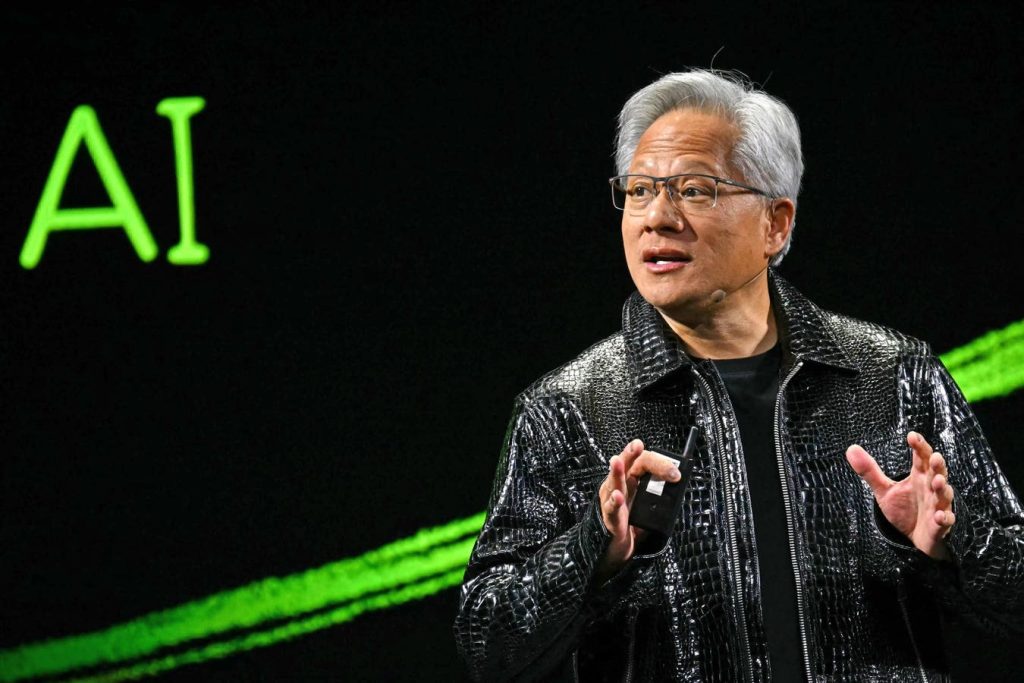AI: The Rise of the Digital Mentor and the Dawn of Superhuman Potential
The burgeoning field of artificial intelligence (AI) is rapidly transforming the way we live, work, and learn. No longer a futuristic fantasy, AI is now stepping into the roles of tutor, mentor, and coach, promising to augment human capabilities in unprecedented ways. Industry leaders like Nvidia CEO Jensen Huang envision AI not as a job-stealing threat, but as a powerful tool for empowering humans, enabling us to achieve "superhuman" levels of performance. Huang, at the helm of the $3.3 trillion chip giant, describes AI as a personal tutor, readily available to provide knowledge and guidance, breaking down barriers to understanding in any field. He emphasizes that AI reduces the drudgery of work, making complex tasks more manageable and freeing up human potential for creative pursuits. Huang himself, surrounded by some of the brightest minds in the world, finds inspiration rather than intimidation in this environment of "superintelligence," stating that it empowers him to tackle increasingly ambitious goals. His advice is clear: embrace AI as a personal tutor and unlock your own potential.
This sentiment is echoed by Salesforce CEO Marc Benioff, who foresees a future where CEOs manage both human and digital workers. This new era of AI coworkers represents a significant shift in the workplace, where AI agents will play integral roles in driving productivity and innovation. The message is clear: the future is now, and the integration of AI into our professional lives is no longer a question of "if," but "when." Huang envisions a future where we become "superhumans," not through inherent abilities, but through the synergistic partnership with AI, leveraging its power to amplify our own strengths and overcome limitations.
The Neural Link: Merging Minds and Machines
Elon Musk’s Neuralink is pushing the boundaries of human-AI interaction even further with its brain-computer interface (BCI) technology. This revolutionary device, about the size of a coin, is implanted in the skull, allowing for direct communication between the human brain and computers. Microscopic wires within the device read neuron activity and transmit signals, effectively enabling users to control technology with their thoughts. This groundbreaking technology has the potential to revolutionize learning, communication, and our interaction with the digital world, offering near-instantaneous access to the vast power of AI. Imagine a world where knowledge and information are accessible instantaneously, simply by thinking – the possibilities are truly transformative.
The Educational Frontier: Navigating the AI-Assisted Learning Landscape
However, the integration of AI, especially through BCIs, raises important questions about the future of education and critical thinking. With the potential for near-instant access to information and problem-solving capabilities, the traditional role of education comes into question. What is the value of learning and memorization when AI can provide answers and solutions on demand? The challenge lies in striking a balance between leveraging AI’s capabilities and preserving the development of essential human skills like critical thinking, problem-solving, and creativity. Over-reliance on AI could potentially lead to a decline in these crucial cognitive abilities.
Educators are grappling with the implications of AI in the classroom, recognizing the need to adapt teaching methodologies to this evolving landscape. The temptation to outsource learning to AI poses a real threat to the development of critical thinking skills. As Andrew Martin, a professor of educational psychology, points out, over-reliance on generative AI for schoolwork could discourage collaborative learning and the development of deeper understanding. The integration of AI into education must be carefully considered to ensure it complements, rather than replaces, the development of fundamental cognitive skills.
Harnessing the Power of the Digital Coach: AI as a Catalyst for Growth
Despite the potential challenges, the transformative potential of AI as a coach and mentor remains undeniable. AI can provide personalized guidance, feedback, and support, tailored to individual learning styles and needs. It can offer access to vast amounts of information and expertise, facilitating continuous learning and professional development. The key lies in utilizing AI strategically, as a tool for augmenting human abilities rather than replacing them. Just as Huang embraces the "superintelligence" around him as motivation and inspiration, we can leverage AI’s capabilities to propel ourselves forward, reaching new heights of achievement and innovation.
The Future of Work: Embracing the Human-AI Partnership
The future of work will undoubtedly be shaped by the increasing integration of AI. Rather than a dystopian vision of machines replacing humans, the most likely scenario is one of collaboration and synergy. AI will take on repetitive tasks, freeing up humans to focus on creative problem-solving, strategic thinking, and innovation. The ability to work effectively alongside AI will become an increasingly valuable skill, requiring adaptability, a growth mindset, and a willingness to embrace new technologies.
The integration of AI into our lives presents both challenges and opportunities. By thoughtfully navigating this evolving landscape, focusing on leveraging AI’s strengths while preserving the development of essential human skills, we can unlock the true potential of this transformative technology. The future is not about being replaced by machines, but about becoming "superhuman" through a powerful partnership with AI, ushering in an era of unprecedented innovation, productivity, and human potential.


